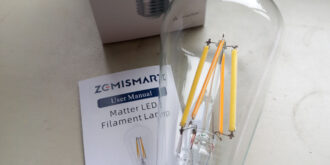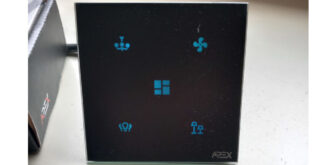Gas vs charcoal BBQ: Which is best for your garden?
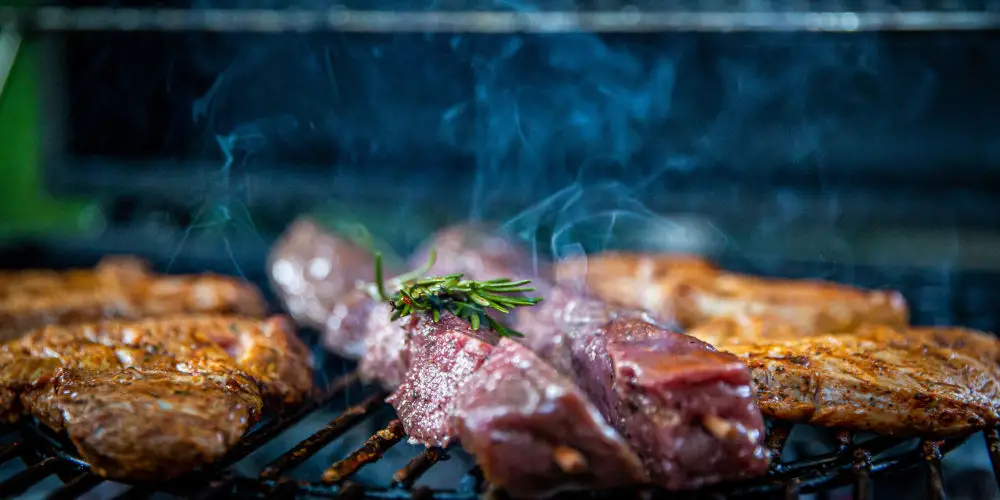
Summer barbecuing is fun and relaxing but usually leads to us wondering if we should use a gas vs charcoal BBQ. Despite both having their own pros and con, many settle this age-old debate by falling firmly into one camp and seldom consider the other option.
But is one better than the other? Is it cheaper to use a gas vs charcoal BBQ? Is charcoal the only way to get that irresistible smoky flavour? And what is the best charcoal to use?
Since no amount of persuasion will convince you to change if you swear blindly that a gas BBQ is superior to a charcoal one, we aim to enable you to open your mind up and consider the other option.
So when it comes to Gas vs charcoal BBQ, which is the best for your garden and outdoor kitchen?
Charcoal barbecues basics
Requiring a level of patience and a degree of patristic, a charcoal BBQ allows you to infuse whatever you’re cooking with plenty of flavours. Charcoal BBQs are excellent for slow cooking meat or create multiple zones, allowing for various temperatures to cook different items.
Why use a charcoal barbecue?
Once burning, charcoal produces a consistent radiant heat. It’s easy to quickly cook and sear food or use indirect heat for slow cooking large cuts of meats such as brisket and ribs, giving them a smoky flavour.
Unlike gas, you can experiment with different types of wood or charcoal, each giving off a unique flavour. Plus the smoke created by the dripping juices produces even more intense flavours.
Any downside of a charcoal BBQ?
Charcoal can be unpredictable to light and start burning. Some resort to firelighters or lighter fluid, both adding an unpleasant petrol taste to your food. One way to make getting started easier is to use a charcoal chimney.
Simply place your charcoal into the chimney with some newspaper and light. The device draws oxygen up through the coals, setting them alight. Then it’s simply a case of pouring them onto the grill and you’ll be ready to cook in 20-30 minutes.
As you’re playing with fire, controlling heat can be tricky and requires attention, care and plenty of practice. After a short while, you’ll get the hang of cooking on live fire and enjoy the sizzling results!
Gas BBQs tend to be larger, providing more space for you to cook and typically have shelves, allowing you to keep food gently cooking while waiting to be eaten.
Charcoal is also more labour intensive throughout the cooking process. With gas, it’s easier to regulate the temperature and keep it consistent. Charcoal needs to be managed, meaning you’ll spend longer at the grill and less time socialising with friends.
How to pick the best charcoal BBQ
As you’re not limited by choice when buying a charcoal BBQ, it can be tricky to pick the ideal unit for you. It’s worth investing in a quality product, despite the extra cost as it should last longer.
At one end a range of affordable, portable BBQs are available that offer no frills. You could instead buy one of our best charcoal BBQs under £200 which offers multiple cooking areas, shelves for food and tools and a lid.
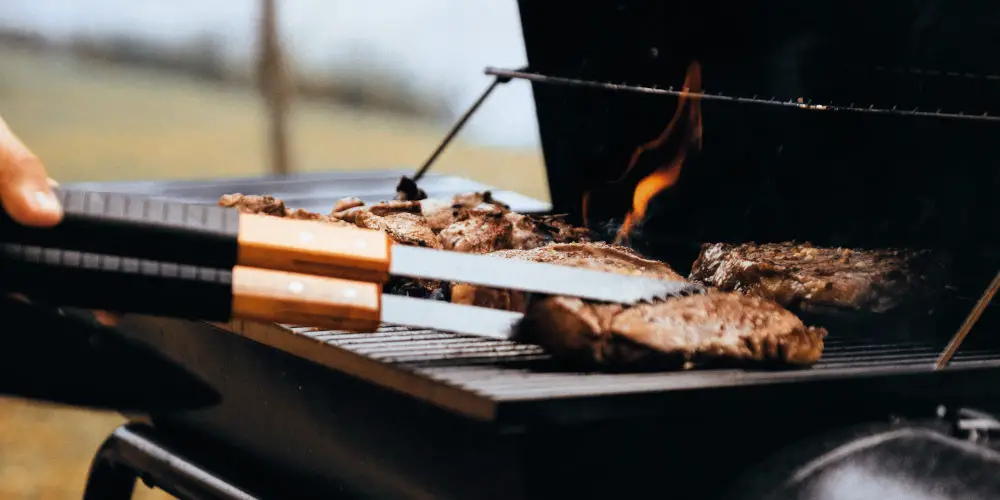
The myth of charcoal smokiness
Many wrongly attribute smoky flavours to the type of charcoal used. However, as a fuel source and much like gas, charcoal alone doesn’t provide much additional flavour.
What does provide a smoky flavour is the drippings (oils, sugars, proteins) hitting the heat source and creating smoke which covers the food. You could argue that a charcoal BBQ provides a greater space for dripping to fall onto the coals, creating more smoke that engulfs your meat.
That said, Wired has proved scientifically that charcoal grilling tastes better than gas. And who are we to argue.
Which charcoal is best?
Just to complicate matters more, there’s a variety of charcoal available. And again, some swear by a particular type of charcoal or wood. Burning wood or coal allows you to build up flavourful crusts, as well as slow cooking cuts for hours.
It might not be practical for you to always use real wood for burning or smoking. Instead, use lumpwood charcoal, as it adds little to no extra flavour to what you’re grilling.
You could use briquettes. These are made from compressed biomass including coal dust, leftover charcoal, paper and sawdust. Briquettes are often laced with additives to improve lighting and burning but these add an unpleasant chemical hint to food as it cooks.
So it’s best to use ethically sourced, homegrown charcoal or wood and avoid briquettes unless that’s the only option available. Consider the environment and your impact when selecting your fuel type, even if it will cost you more.
Depending on what you’ll be cooking, fuel size will matter. For example, smaller chunks of lumpwood will burn quicker than larger pieces. So if you’re planning to slow cook your meat, opt for larger wood chunks to ensure the best results.
Overall, the cost of buying charcoal is more expensive than buying an equivalent amount of gas. You could argue, that a gas BBQ will pay for itself when compared to the amount you’ll end up spending on charcoal or wood over the lifetime of your barbecue.
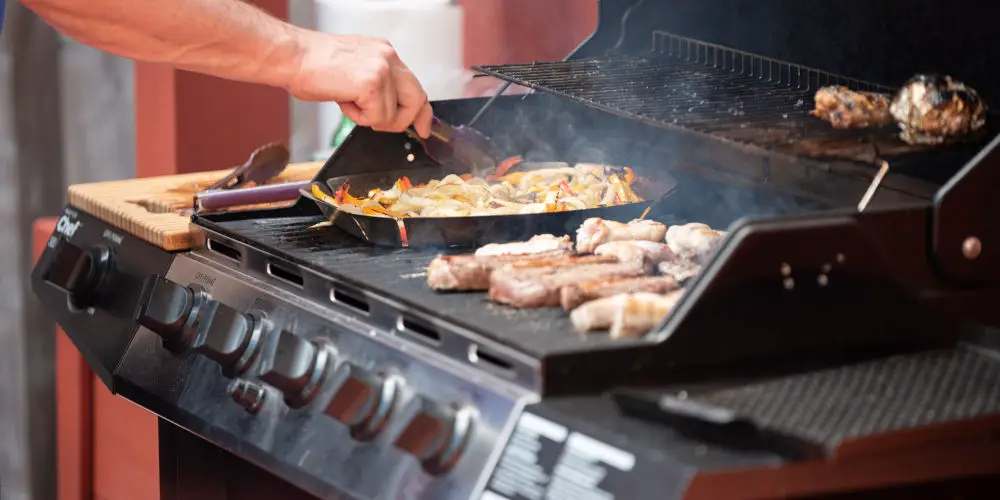
Gas BBQ basics
Some might see using a gas grill as cheating as they’re ready to use in an instant, convenient and efficient. However, for most, they are the simplest way to grill food outside. There’s no need to waste time and effort getting the fuel to light as you have to with charcoal.
Plus once lit, you can easily control the temperature without having to move coals around.
Why use a gas BBQ?
For the majority of us, having a BBQ is a way to relax with friends. Grilling different meats to perfection probably isn’t your top priority. When deciding between a gas vs charcoal BBQ, many prefer gas as it requires less patience and practise.
With the best gas barbecue, you should be ready to grill in under 10 minutes and without any of the hassle of coal.
As with a gas hob, a good gas grill responds instantly to temperature adjustment, providing better overall control. Typically a gas barbecue uses 2 or 3 burners, producing direct and consistent heat, providing the ideal conditions for cooking BBQ staples.
Heating up within minutes, you can easily grill meat and vegetable even if you’re short on time. Plus with consistent heat, they’re ideal for churning out rounds of burgers and sausages when entertaining larger groups.
Any downside of a gas barbecue?
As gas BBQs are highly efficient unless the lid is shut, the radiant heat is easily dissipated. Charcoal barbecues create a blanket of heat that circulates to slowly cook the food. As gas grills lack this, many try to compensate with lava rocks and ceramic plates.
However, even with these added pieces of technology, they still struggle to retain heat, making it tricky to build flavourful crusts on larger cuts. As the heat is directional, creating areas for indirect cooking or smoking is challenging.
Another issue is adding a smoky flavour. Your only option is to use soaked wood chips above the flames, which gives a less than ideal flavour, especially when compared to what you can achieve using coal or wood.
Which gas barbecue is best?
Gas BBQs are often more expensive than coal ones but typically have more features and cooking space. That said, there are good options across the price range. Again, when looking to buy a gas barbecue you should consider storage options, versatility and sturdiness.
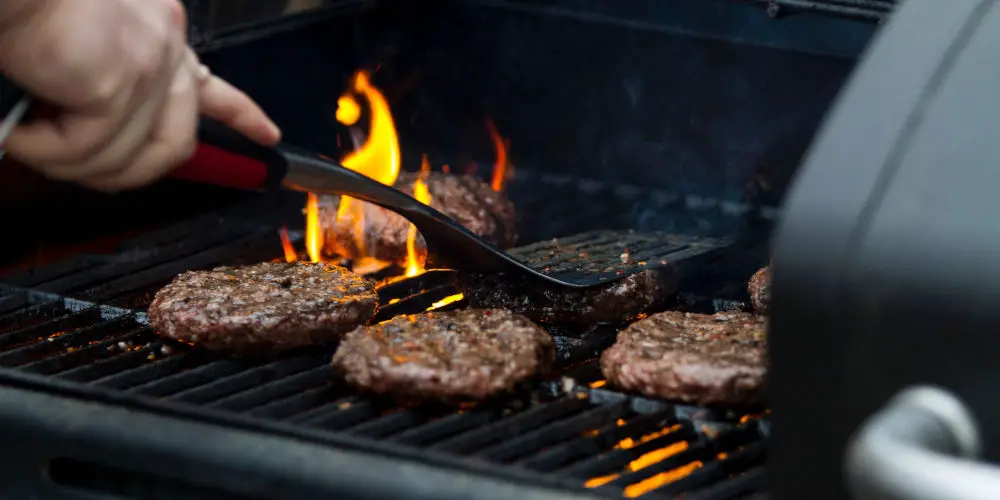
Settling the Gas vs charcoal BBQ debate
As with most things in life, trying to decide between gas vs charcoal BBQ depends on individual preferences.
The best taste comes from slowly cooking food over wood or charcoal, but it also requires patience and practice. That said, you can impress your friends with more exciting flavours by cooking with wood or charcoal.
To get started, you might want to attempt cooking brisket, a beer-can chicken, or some super-smoky charcoal-baked spuds.
If you’re after speed, nothing beats gas, especially if you’re grilling burgers and sausages for a crowd of mates. A gas grill is easier to use and offer more consistent results with less effort.
Regardless of how you settle the gas vs charcoal BBQ debate, you should invest in some essentials BBQ tools to make cooking easier.

